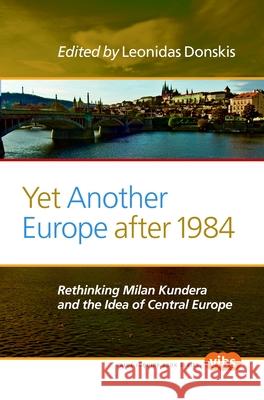Yet Another Europe after 1984 : Rethinking Milan Kundera and the Idea of Central Europe » książka
Yet Another Europe after 1984 : Rethinking Milan Kundera and the Idea of Central Europe
ISBN-13: 9789042035430 / Angielski / Miękka / 2012 / 230 str.
Much of the debates in this book revolves around Milan Kundera and his 1984 essay "The Tragedy of Central Europe." Kundera wrote his polemical text when the world was pregnant with imminent social and political change, yet that world was still far from realizing that we would enter the last decade of the twentieth century with the Soviet empire and its network of satellite states missing from the political map. Kundera was challenged by Joseph Brodsky and Gy rgy Konr d for allegedly excluding Russia from the symbolic space of Europe, something the great author deeply believes he never did. To what extent was Kundera right in assuming that, if to exist means to be present in the eyes of those we love, then Central Europe does not exist anymore, just as Western Europe as we knew it has stopped existing? What were the mental, cultural, and intellectual realities that lay beneath or behind his beautiful and graceful metaphors? Are we justified in rehabilitating political optimism at the beginning of the twenty-first century? Are we able to reconcile the divided memories of Eastern or Central Europe and Western Europe regarding what happened to the world in 1968? And where is Central Europe now?











